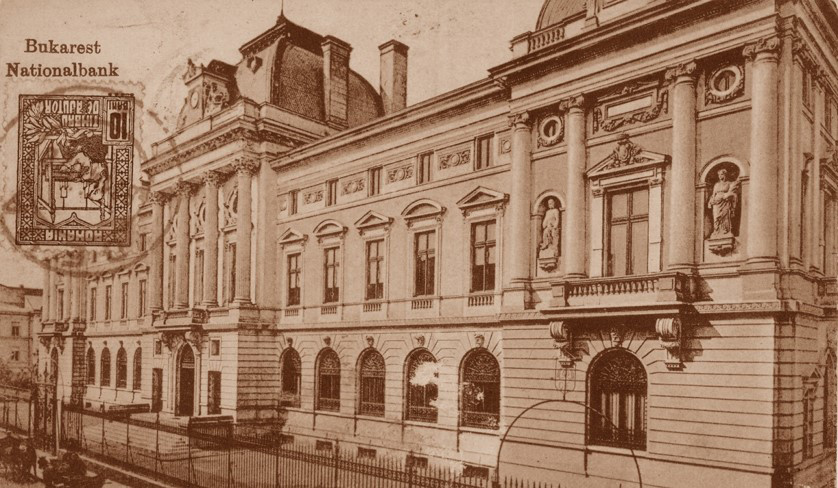During the First World War, the National Bank of Romania was one of the key institutions of the country. Between 1916 and 1918, during Romania’s participation in the war, the governor of the National Bank was Ioan G. Bibicescu, a remarkable figure in Romania’s cultural and economic history, a figure which, unfortunately, is little known today.
During both the war and the post-war period, the National Bank adopted special measures and laws that were to the benefit of the state, most of these being taken during Bibicescu’s time as governor:
• The National Bank financially supported the military effort of the Romanian army;
• In the autumn of 1916, the National Bank’s headquarters was moved to Iași;
• In December 1916, under the threat of foreign occupation, the Romanian Treasure was transported to Moscow, but only after getting the approval of the Romanian government, and after getting the Russian imperial government to take on the responsibility for the security of the transport, storage and return to Romania. The transport was accompanied by Theodor Capitanovici, Anghel Saligny and M.Z. Demetrescu;
• In August 1917, the second part of the Romanian Treasure was evacuated to Moscow.
When the war ended and with the realization of the Great Union, the National Bank of Romania:
• Expanded its activity throughout the country;
• Involved itself in the monetary unification of the country by withdrawing from circulation any roubles, crowns and banknotes issued by the General Bank in the territories occupied by the German armies during the war.
Concerning Governor Bibicescu’s career, he was appointed the director of the National Bank in 1895. Until 1914, when he took over the role of deputy governor of the central bank, Ioan G. Bibicescu collaborated with the most important people of said institution, people like Eugeniu Carada, Emil Costinescu or Anton Carp. In 1914, after the death of Anton Carp, Bibicescu was invested through a royal decree as deputy governor for a period of one year.
In 1915, his mandate was renewed, and starting with 1916, he would run the bank as governor, in one of the most difficult periods of its existence. Bibicescu remained governor until December 1921 when, due to age and poor health, he decided to retire. He continued to be a director within the institution, and the Presidency of the Council of Ministers, at the proposal of Mihail Oromolu, the new governor of the National Bank, granted him the title of honorary governor, being the only head of the institution who enjoyed such recognition of his merits.
Translated by Laurențiu Dumitru Dologa.

